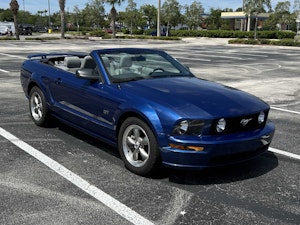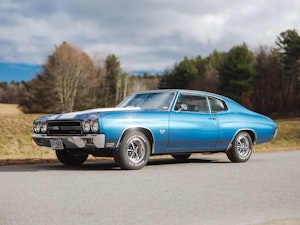Media | Articles
SEMA loses its patience, sues on behalf of turn-key replica automakers
Nearly four years after President Barack Obama signed the Low Volume Motor Vehicle Manufacturers Act into law, the National Highway Traffic Safety Administration has yet to share the required guidelines for turn-key replica and continuation cars. Enough is enough for the Specialty Equipment Market Association (SEMA).
Following through on a threat it made last year, SEMA filed a lawsuit with the Ninth Circuit Court of Appeals in California last week, asking a federal appellate court to compel the NHTSA to act. The 2015 law, filed as H.R. 2675, was part of a larger highway funding bill called the Fixing America’s Surface Transportation (FAST) Act. It allows the sale of turn-key replica and continuation cars “within a regulatory system that addresses the unique safety and financial issues associated with limited production.” Under the law, low-volume automakers can annually produce up to 325 replica cars that resemble production vehicles manufactured at least 25 years ago.
The deadline for the NHTSA to issue the regulations necessary to implement the law was December 4, 2016.
SEMA President and CEO Christopher J. Kersting said in a press release that “SEMA has made every effort to work collaboratively with NHTSA for over three and a half years,” but the agency has yet to act. “Consequently, companies have not hired workers, businesses have lost money, and consumers have been denied their rights to purchase replica cars.”
SEMA says vehicles produced under the Low Volume Motor Vehicle Manufacturers Act will be “current model year clean cars. The U.S. Environmental Protection Agency and the California Air Resources Board have developed guidelines and regulations to confirm that the engine packages to be installed will meet current emissions standards.”
Marketplace
Buy and sell classics with confidence
Prior to enactment of the act in 2015, the U.S. had just one system for regulating automobiles. Established in the 1960s, it was designed for companies that mass-produce millions of vehicles, and it prevented small businesses from manufacturing turnkey cars. According to SEMA, some small companies made capital investments and accepted customer orders on the assumption that sales could begin in late 2016. Without action from the NHTSA, however, those companies—and their customers—are still waiting.
According to Hemmings, the prolonged delay caused former race team owner Charley Strickland to lose his funding for a proposed Lamborghini Countach replica. Strickland still hopes to produce the car.
Vehicles produced under the FAST Act will be current model-year clean cars. SEMA says the U.S. Environmental Protection Agency and the California Air Resources Board have developed guidelines and regulations to confirm that the engine packages to be installed will meet current emissions standards.
We’ve reached out to SEMA for comment and will update this story if if we receive a response.










